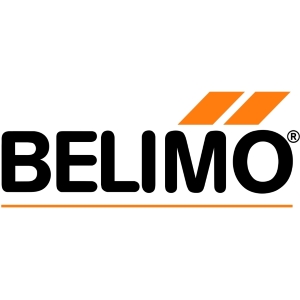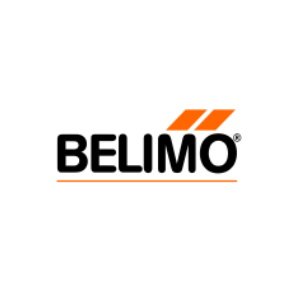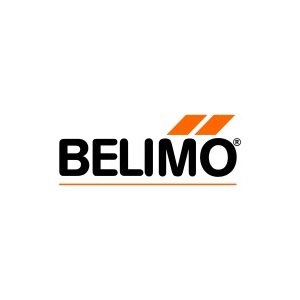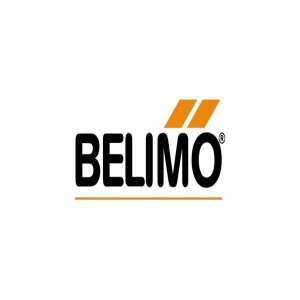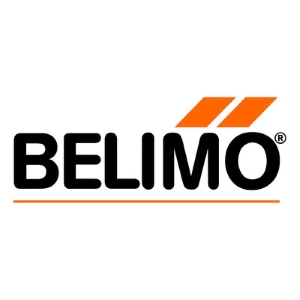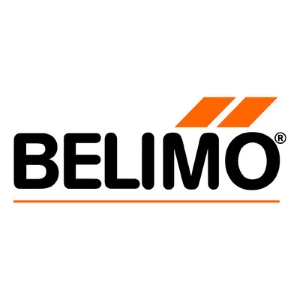BELIMO Holding AG - Experts & Thought Leaders
Latest BELIMO Holding AG news & announcements
Belimo achieved strong results and continued to deliver on its growth strategy despite complex economic conditions. Belimo pursued its long-term growth and investment strategy unwaveringly and successfully throughout 2023. Thanks to highly engaged employees and a strong network of suppliers, Belimo was able to master the year’s challenges exceptionally well. In line with its strategy, the Group welcomed almost 100 additional new talents during the year under review. Belimo invests in research and development To sustain future business, CHF 76.0 million, equivalent to 8.9% of net sales, was invested in research and development, amongst other things for the most advanced platform for building automation field devices. A platform that will allow for a seamless design, installation, and commissioning experience across the product range offering, as the field devices will become more integrated and require consistent interfaces in the evolving building automation architecture.
Belimo is excited to announce a free online event for HVAC professionals that will focus on valve technology and how Belimo’s new solution delivers superior performance and ensures seamless and efficient system operation. Real-life examples, as well as tips and insight on improving building systems, specifically in high-flow applications and critical facilities, will be included. It is being held on Thursday, March 7, 2024, and can be accessed from anywhere. Building's climate control Presenters will guide attendees via building challenges and unlock options along the way This online event will include presentations by Belimo experts and provide valuable information on how to reduce energy consumption and address unreliable control devices disrupting the building's climate control. The presenters will guide attendees through building challenges and unlock opportunities along the way. The online event will take place on Thursday, March 7, 2024, at 2:00 pm ET.
Belimo demonstrated substantial sales growth in a year characterized by inflation pressures, rising interest rates, and slowing business momentum in the construction industry. In 2023, net sales grew 7.2% in local currencies and 1.4% in Swiss francs to CHF 858.8 million. The Americas market region reported impressive results with a sales growth of 7.7% in local currencies. This follows an extraordinary previous year in which Belimo was able to gain significant market share due to delivery issues in the industry. This led to a substantial baseline effect, particularly in the second half year of 2022. EMEA market region growth In the face of a challenging construction market, the EMEA market region achieved solid sales growth of 6.4% in local currencies thanks to a strong focus on retrofit opportunities. The Asia Pacific market region registered an increase in sales of 8.2% in local currencies. Belimo India, along with other regional subsidiaries, performed exceptionally well, compensating for the challenging circumstances in China.
Insights & Opinions from thought leaders at BELIMO Holding AG
As the Internet of Things (IoT) has evolved, the need has become obvious for stronger unity among brands and ecosystems to enable products within smart environments to work together more easily. Working to serve that need is the Zigbee Alliance, which seeks to promote collaboration in the Internet of Things by creating, evolving, and promoting universal open standards that enable all objects to connect and interact. Their effort took off when Amazon, Apple, Google and the Zigbee Alliance announced an industry working group in December 2019 to take the “best of market” technologies from leading smart home standards, portfolios and ecosystems and to develop a “super spec” that will be open, inclusive and a significant industry shift in the smart home market. smart home automation system “Zigbee Alliance has been for a while now working on openness and interoperability, which has led us to the Project Connected Home over IP (CHIP), which is looking to unify the environment, under one technology, one certification program and one logo,” says Chris LaPré, Zigbee Alliance’s IoT Solutions Architect. “It really does fuel IoT possibilities, whether in HVAC or any other sectors.” There is a stronger need for unity, which is why we are developing Project Connected Home over IP" Project CHIP is a royalty-free connectivity standard that unifies brands and ecosystems into a single smart home automation system that operates any other technology based on Internet Protocol (IP). The intent is to simplify product development for device manufacturers, broaden consumer choice, and to ensure easy discoverability, deployment and engagement to fuel connected living. unifies that environment “We have noticed that, as the IoT has evolved, there is a stronger need for unity, which is why we are developing Project Connected Home over IP,” says Jon Harros, Zigbee Alliance’s Director of Certification and Testing Programs. “It fits with the Zigbee Alliance’s goal to unify systems, and to focus on everyone using the same application at the top. It unifies that environment, whether you are integrating your system with Amazon Echo devices or connecting to Google Home.” Participating in development of Project CHIP are 125 companies of various types from around the world working together with more than 1,100 of their experts serving across sub-committees to formulate specifications and fine-tune the project. Although the technology is being developed for the home market, the specifications have been formulated with an eye toward expanding into the commercial market in the future. home system technologies Development of open, interoperable systems provides greater freedom for consumers to choose among the many technology choices on the market, without being tied to a single brand or ecosystem. Zigbee Alliance certifications and memberships span the globe, with roughly a third in Europe, a third in North America and a third in Asia. Involvement in Europe is slightly higher than the other regions. Alliance members represent manufacturing sites all over the world. Project CHIP is a newer initiative of the Zigbee Alliance, which previously developed Zigbee Pro to enable home system technologies to operate using IEEE 802.15.4 wireless signals on the 2.4GHz radio band over a self-healing true mesh network. The original Zigbee protocol is used for many applications around the world, including HVAC. smart temperature devices HVAC developers who have specific use cases should have a look at the work of the alliance Members of the Zigbee Alliance include HVAC companies such as Lennox, Stelpro and Belimo, among others. Carrier is a recent company that has joined the Zigbee Alliance. Smart thermostats, including the popular Ecobee, have used the Zigbee protocol. More than 100 different devices have been certified as thermostats or smart temperature devices. Harros urges other HVAC companies to become more involved with the Alliance. “We want them to come and have a look to see what we are doing and get involved,” he says. “This is where the work is being done as we unify the environment and bring together all the devices and ecosystems to work together.” HVAC developers who have specific use cases should have a look at the work of the alliance, he adds. certification transfer program Among the strengths of the Zigbee Alliance are years of experience certifying products, which includes testing them and confirming that they comply with the promoted specifications and functionality. The specifications are open standards that are developed in cooperation with all the companies that are Zigbee Alliance members. Another route is the certification transfer program, in which a company chooses a certified white-label product, becomes a member of the Alliance, and then rebrands the product while retaining the certification. “It helps them get products on the market quickly while they build their own knowledge base,” says Harros. "All our work is focused on standardizing the behavior and functionality of products and making sure everyone is following the same standard to get interoperability,” says Harros. “Members all contribute to the standards.”
From A To L: Your A2L Transition Guide
DownloadLeveraging Radiant And Hydronics To Help Achieve Decarbonization Goals
DownloadSealed Connectors In Harsh Environments
DownloadPowering And Cooling Next Generation Data Centers
DownloadDebunking Myths To Promote A Bright Future For Heat Pumps
DownloadBelimo D6100NL Butterfly valve with Lug types
Belimo D6400NL Butterfly valve with Lug types
Belimo D625NL Butterfly valve with Lug types



